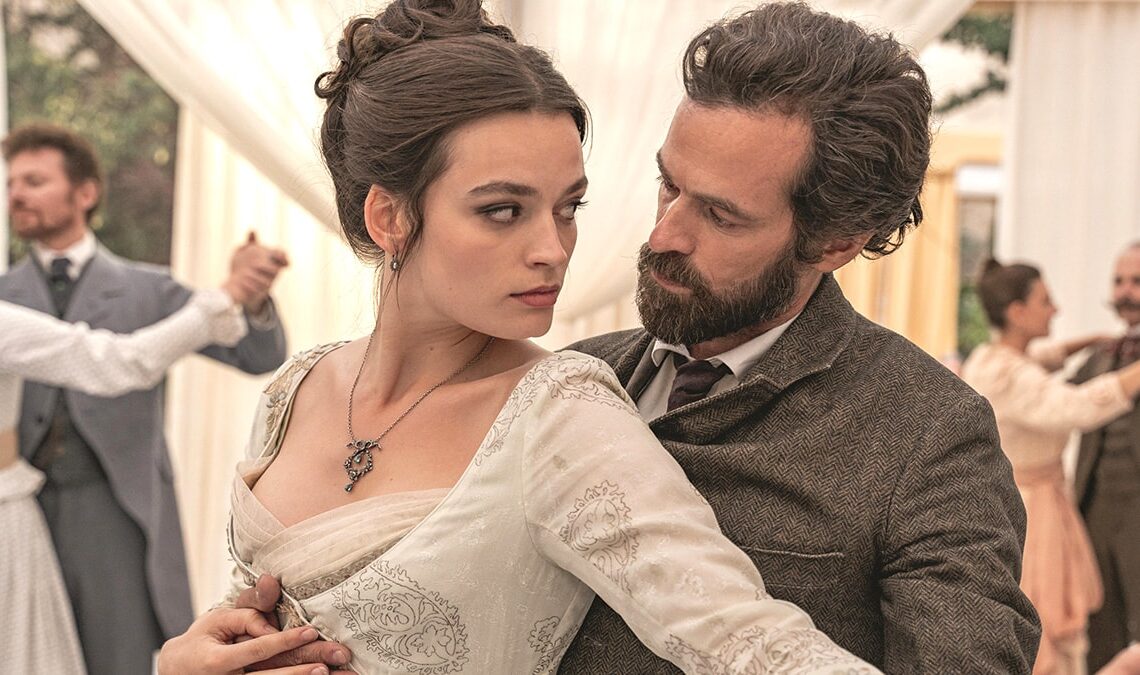The extraordinary life and love associated with legendary French engineer Gustave Eiffel are disappointingly only briefly explored in this romantic period piece.
Director Martin Bourboulon was beset with a huge challenge before him when taking this project. Gustave Eiffel is a legendary modern figure in French society. His works on the Statue of Liberty and Parisian metro were the biggest highlights of his career before you-know-what was eventually built. Bourboulon and five credited screenwriters create a fictitious romance plot to fill the gap of the unknowns of the Eiffel Tower build.
The writing of Gustave Eiffel is a highlight here. While he is not represented in a very historically accurate way, his hopeless romantic demeanour performed wonderfully by Romain Duris distracts the viewer from that fact. His real-life lover Adrienne Bourgès played by Emma Mackey is not as well fleshed out, instead merely acting as inspiration for Gustave. This is somewhat disappointing, as the story has elements of intrigue about who she is and why she is so important to our protagonist, but the writers never really develop this plot much further than a romantic fling.
The insinuation that the Eiffel Tower is a testament to love, a-la the Taj Mahal, is a very odd choice that doesn’t exactly pay off. Knowing more about what makes the man himself tick, who he is and why he dedicated himself to such a monument of architecture would have made for a far more intriguing story, and while there are flurries of that in this film, make no mistake, this is a romance film.

The romantic plot here is fun and cutesy, with good tension between the two leads, which Mackey excels at. However, the eventual realisation of what this relationship is and what it means leaves a bad taste. It ruins a lot of the goodwill the movie was admittedly building towards, even being somewhat offensive to the true-life story.
Bourboulon has a good eye for scale and makes good use of the crew and resources he has to work with, this being the largest French production of the year, truly making 1800’s Paris feel real with his excellent direction. As well as this, the musical score is whimsical and, at times, very effective, playing off an orchestral adaptation of the typical Parisian music one expects in these kinds of films.
Eiffel is an odd one. It is sometimes a fun reimagining of true-to-life events, complemented by excellent performances and a director who knows what they’re doing behind the camera. At other points, it is a bafflingly melodramatic and uninteresting “what if?” scenario that doesn’t do the main character much of any justice. Even still, anyone interested in history or architecture will get something from this film, if for nothing else, historical Paris is always a welcome sight on the big screen.
Fun Fact:
Writer Caroline Bongrand came with the idea of mixing the building of the Eiffel tower with a forbidden love story off the top of her head during a pitch session with a producer in Los Angeles without knowing at this time if it had any basis in reality. It was only after the deal with the producer was signed that she browsed through biographies of Gustave Eiffel and discovered that her inventions were almost all true.




COMMENTS